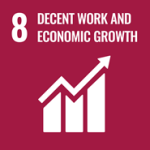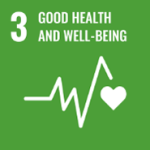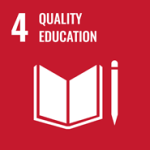
Areas of Impact
Country
Road traffic injuries (RTIs), annually affecting over 330,000 individuals and resulting in a fatality rate of 31 deaths per 100,000 population, are a significant issue in Tanzania. This rate surpasses the sub-Saharan Africa average and is almost double the global rate. The situation is aggravated by major gaps in the Emergency Care Systems (ECS), leading to substandard post-crash response, avoidable fatalities, and lifelong disabilities.
The National Emergency Care Systems Assessment (ECSA) conducted by World Health Organisation (WHO) and Ministry of Health (MoH) identified gaps in Tanzania’s ECS system that could significantly contribute to otherwise avoidable RTI mortality and morbidity. The country lacks adequate on-scene response to Road traffic crashes (RTCs). The ECSA report identified several challenges pertaining to post crash care in Tanzania, including lack of standardized certification for ambulance providers, lack of an organized ambulance response to emergencies, lack of national emergency care access number and lack of central national registry for injuries. The ECSA report recommended the systematic implementation of components of WHO emergency care toolkit to strengthen the ECS in Tanzania.
This project seeks to improve post-crash care and outcomes for victims of road traffic injuries by building the capacity of ambulances services and lay first responders to respond directly to the scene of crash, administer appropriate scene care, and safely transport the patient to health facilities that have improved emergency care capacity for caring RTI victims.
The project will strengthen post-crash care by improving the capacity of pre-hospital and hospital emergency care systems to provide timely and appropriate first aid on scene, safe transport, effective emergency care and disposition of victims of RTIs in Tanzania. Through strengthening post-crash care, the project hopes to reduce the avoidable mortality, prevent lifelong disabilities, and improve outcome of RTI victims. In addition to improved patient outcomes, the implementation of standardized trauma form will support the development of a national trauma registry, facilitating assessment, quality improvement strategies, and provide evidence for decision making process by policy makers and other relevant authorities.
This project offers a sustainable solution by adopting a multi-tiered approach that integrates existing Government initiatives, fostering capacity building and knowledge transfer, and focusing on data-driven strategies for continuous improvement. It targets the root cause of high road traffic injury mortality and morbidity rates in Tanzania, by addressing two (of five) key supporting activities of Safe system design model; emergency medical management for post-crash care, and provision good registry-based data for understanding of crashes on the network to enable accurate identification of risks across sections of the network.
1
IMPROVE POST-CRASH CARE AND OUTCOMES FOR VICTIMS OF ROAD TRAFFIC INJURIES (RTI) BY BUILDING THE CAPACITY OF AMBULANCE SERVICE PROVIDERS.
2
MAP AND TRAIN OF APPROPRIATE LAY FIRST RESPONDERS TO RESPOND DIRECTLY TO THE SCENE OF CRASH AND ADMINISTER APPROPRIATE FIRST AID CARE.
3
DEVELOP CAPACITY FOR SAFE TRANSPORT OF PATIENTS FROM SCENE TO HEALTH FACILITIES THAT HAVE IMPROVED EMERGENCY CARE CAPACITY FOR CARING RTI VICTIMS.
4
BUILDING CAPACITY OF EMERGENCY UNITS OF HEALTH FACILITIES TO TRIAGE, PROVIDE APPROPRIATE LIFESAVING INTERVENTIONS, AND SAFE TRANSFER OF VICTIMS OF RTI.




